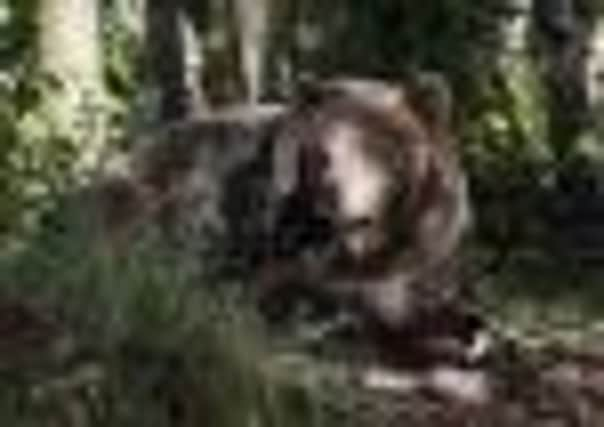Brown bear adopted by Polish soldiers in war to be given statue in Princes Street Gardens


The six-foot-tall orphan Syrian bear, known as “Private Wojtek”, became a potent symbol of the Polish struggle in the Second World War after being reared by soldiers and later helping them carry boxes of live shells from lorries to gun emplacements during battle. Like his comrades, he was also known to recharge from the fighting by drinking beer and smoking cigarettes.
Now a huge bronze cast of the unlikely war hero by sculptor Alan Heriot could be mounted in central Edinburgh next year – to mark the 50th anniversary of the bear’s death. Expected to cost £200,000, the plans form part of a long campaign by the Wojtek Memorial Trust to highlight the bear’s remarkable tale and honour Poland’s wartime sacrifice.
Advertisement
Hide AdAdvertisement
Hide AdAileen Orr, author of Wojtek The Bear: Polish War Hero, believes a permanent monument is long overdue.
She said: “This is one the classic stories of the Second World War. You don’t have to embellish it because the story itself is incredibly exciting and sad.”
Meaning “smiling warrior”, a baby Wojtek became attached to the Polish Second Corps in Persia, in 1942, after a shepherd boy traded him for a cache of tinned meat.
The bear travelled with the soldiers to join the fight in Egypt and Italy but within two years had been enrolled in the Polish army, despite strict orders that no animals accompany the soldiers to join the Allied advance on Italy.
Advertisement
Hide AdAdvertisement
Hide AdHe was later adopted as a emblem of the Polish fight, and the banner and buttons of the Transport Corps were redrawn in his image.
After the war, the bear moved with his unit to Berwickshire, where they remained for some years due to the Soviet occupation of Poland. When the Polish battalions returned home, Wojtek stayed behind and entered Edinburgh Zoo in 1947, where he spent the rest of his life.
“The soldiers dearly wanted to take Wojtek back to Poland,” said Ms Orr. “They used to dream of travelling from their camp in the Borders to Edinburgh, marching with the bear from Princes Street to Leith Docks then boarding a ship and setting sail to Gdansk in Poland. There, they would hold victory marches through all the cities and towns on their way to Warsaw.”
Half a century later, the Trust hopes to fulfil this vision by parading Wojtek’s bronze likeness through the streets of the Capital and Warsaw.